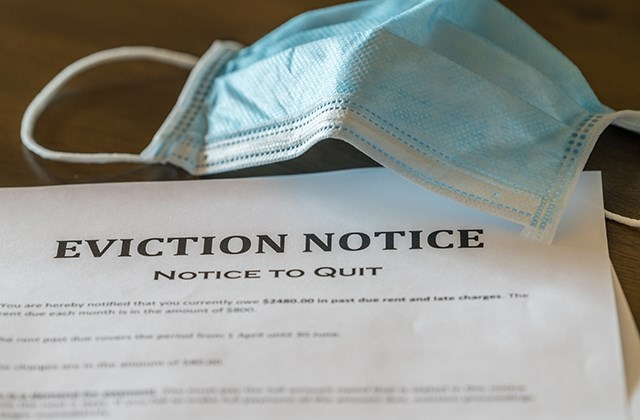Editor's note: This story was originally published by Colorado Newsline. Read the original story here.
***
A new Colorado state law requires courts to suppress records of eviction cases while they are moving through the court process and keep them hidden if the tenant wins.
Prior to the law going into effect, eviction filings, regardless of the outcome of the case, automatically created court records, which then could be acquired by third-party screening companies to produce tenant reports for landlords. Now, the only court records that landlords will have access to are the cases that actually result in an eviction.
Between 2000 and 2016, 36,240 evictions were filed in Colorado, but only 18,195 resulted in an eviction, according to the Eviction Lab at Princeton University. In other words, only half of the cases filed actually resulted in the tenant needing to vacate their home.
Under the new law, researchers, journalists and other members of the public are still able to request aggregate data from the Colorado Judicial Branch to determine the number of eviction cases filed throughout the state. But even with the number of evictions filed, it’s difficult to determine the actual number of evictions that occur, because the state doesn’t indicate why a case is closed.
For example, approximately 2,160 evictions were filed throughout the state — excluding Denver — between Sept. 4 and Oct. 19, according to data from the Colorado Judicial Branch. Of those filed, 1,493 cases were considered closed.
“It could be either that the case was settled or the proceedings were over and the eviction had happened, or at some point throughout the process, the case was dropped, or not pursued in some way shape or form,” said Rob McCallum, a spokesman for the Colorado Judicial Branch. “So those are really the two avenues.”
Colorado Newsline is part of States Newsroom, a network of news outlets supported by grants and a coalition of donors as a 501c(3) public charity. Colorado Newsline maintains editorial independence. Contact Editor Quentin Young for questions: [email protected]. Follow Colorado Newsline on Facebook and Twitter.


.jpg;w=120;h=80;mode=crop)
